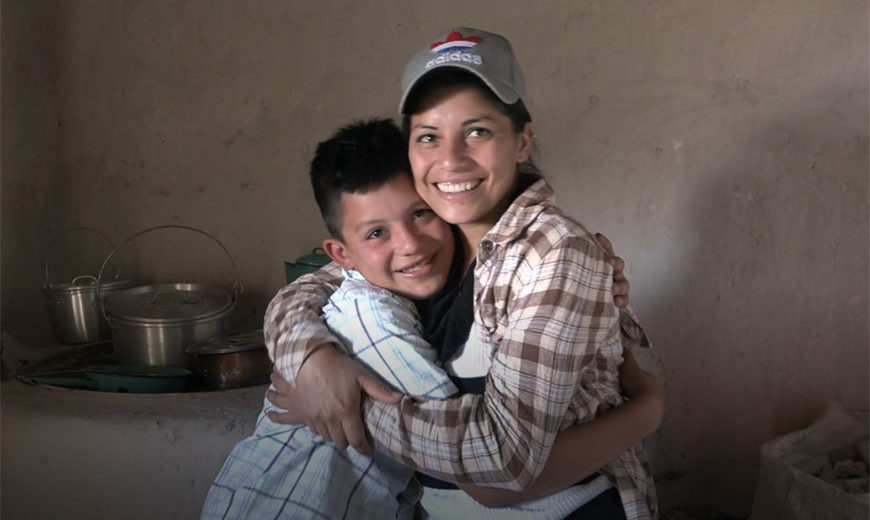2 Oct 2019
Olga's story: A portrait of a Honduran coffee farmer
Plunge into the story of Olga Alvarado, who left her home in Honduras at only 18 years old to provide a better future for her son. Leaving a situation of poverty to earn money in the United States enabled her to buy a coffee plot in Honduras.
Today Olga Alvarado is one of the 760,000 smallholder coffee farmers that are part of Fairtrade.
We talked to her last week in Bonn, when she was part of the annual Fairtrade coffee meeting. Along with other representatives of the Latin American Producers Network, CLAC, Olga shared her insights and ideas for sustainable coffee production.
She spoke appreciatively of how Fairtrade helps farmers transition to environmentally and economically sustainable farming. Olga shares the knowledge gained in the trainings with her children. Whichever path they will choose, Olga is supportive. What counts to her is that she is a good role model for them to live sustainably and that they will not feel that they need to leave their country for a future.
Fairtrade: Why is coffee important to you?
For me coffee is important because with it my family has grown. For us it’s been a grain that has helped us survive and move forward.
Why is coffee important in Honduras?
For the economy, to sustain the family, to have a future, and to make a future for our children with the profit from coffee.
You’ve been in Germany for two weeks now. What are your impressions?
People drink a lot of coffee [laughs]. And I thought I drink a lot of coffee! I am happy about it. It makes me happy to see our coffee in the supermarket and I hope people will consume more Fairtrade coffee.
How did you start to become involved in Fairtrade?
I became part of an organization [COAQUIL, a Fairtrade certified cooperative]. From the beginning on, they provided me with guidance about the steps I need to follow. We continue to receive trainings.
Could you tell us about the challenges farmers are facing within the Fairtrade system?
One of the most important questions the farmers of cooperatives ask themselves is whether or not to make the transition to producing organic coffee. We want our kids to be closer to the environment.

Image © Sean Hawkey